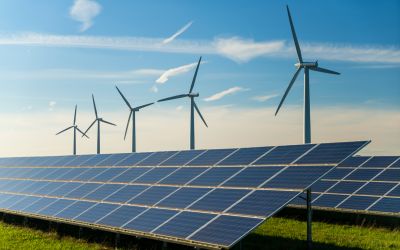Woody fuels would fuel global energy this century, says survey
A survey from the Potsdam Institute for Climate Impact says a balance between increased biomass use, forest protection and advances in crop yields, is essential to reduce global carbon emissions.

A balance between increased biomass use, forest protection and advances in crop yields is essential to reduce global carbon emissions, according to a study from Germany’s Potsdam Institute for Climate Impact (PIK).
Biomass is a renewable energy source derived from living or recently living organisms such as trees and plants. The study suggested that burning biomass for energy would be more effective than planting high energy fuel crops in place of oil and coal. The research also highlights the importance of forests as a substantial carbon sink and suggests that preservation of these should continue.
The study estimated that one-fifth of global energy demand could be produced from biomass energy generation by the end of the twenty-first century, when used in conjunction with (as yet unproven) Carbon Capture and Storage technology.
Forest protection reduces the economic potential of using biomass energy in the short term by about 30 per cent until mid-way through the twenty-first Century. But the study predicts that biomass can contribute 270 exajoules of the worldwide energy supply by 2095, just ten per cent less than a scenario that didn’t involve forest protection.
PIK’s survey acknowledges that the protection of forests would also put more pressure on farmland as bio-energy production competes with food crop production for land use. This would drive up the cost of food and require an increase in agricultural productivity by agribusinesses.
Alexander Popp, of PIK, said: “If one wants to achieve high potentials of bio-energy under the constraint of forest protection, much more investment has to be made in increasing agricultural productivity”
Scientists at PIK conducted the investigation using a complex computer-based model which coupled vegetation land use and energy system models to investigate the trade-offs between different factors that could affect the system in the future.
Ottmar Edenhofer, co-author of the study and chief economist at PIK, said that increased use of bioenergy is essential to avoid dangerous climate change.
Mr Edenhofer said: “Without biomass plus carbon capture and storage – the sequestration of CO2 when those plants are used to fire power stations – climate protection might get quite expensive, as many studies show.”
Edenhofer also defended the complexity of the study and the balance needed in a biomass energy mix: “This kind of energy also comes at a price. Policies therefore shouldn’t just aim at the bioenergy but also integrate issues of land-use change and global food security.”
The Potsdam Institute for Climate Impact
Image: Andrew Ciscel | Flikr
Angus Hutchison






